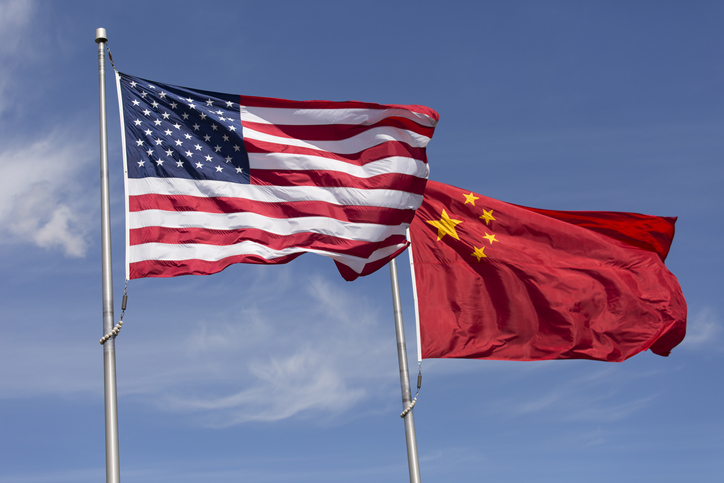JINSA: Center of gravity is US perception of Israel’s-China relations
By OMRI NAHMIAS
iStock.com/ Credit:cbarnesphotography
WASHINGTON – The Jewish Institute for National Security of America (JINSA) recently hosted a webinar on Chinese investments in Israel and the challenge they pose to the US-Israel relationship.
China’s most severe threat to Israel “is by undermining and straining the strategic relations between Israel and the United States,” according to Assaf Orion, director of the Israel-China Research Program at the Institute for National Security Studies, an independent research institute and think tank affiliated with Tel Aviv University.
“The center of gravity here is the US perception of Israel’s China relations rather than the relations themselves,” he said.
Israel does not see China as a direct threat, Orion said.
“First of all, it’s a low priority for China, except on some issues,” he said. “But we do identify challenges and risks from China. We need to watch out for cyber and IP [Internet Protocol] issues, including tech transfer through the academy. We have no direct military threat from China, but we do see Chinese weapons exported to the region.”
Another challenge is the techno-military-intel cooperation between China and Iran, “which is actually a convergence of US and Israel interests,” Orion said.
Adm. (ret.) Jonathan Greenert, co-chairman of JINSA’s Israel-China Policy Project and a former chief of naval operations, said Haifa Port is a key factor because all of the Sixth Fleet’s operations in the Eastern Mediterranean are operating with a partner.
“Here we have China, and we have a lot of unfortunate lessons learned about how China has started small and then very slowly but surely integrated themselves and become a problem,” he said. “I think that is the issue. There have been instances where China has been a problem. If you’re not careful, you get sloppy; the next thing you know, they’re into your systems and into your networks.”
“If you are careful, perhaps it is not a problem,” Greenert said. “China needs places to be global. They need places to operate, maritime-wise and otherwise. They have been working on a deal with Iran, and some say, ‘Oh boy, they’re going to have a partnership or an alliance with Iran.’ Well, I doubt it. Iran is not very stable, never really has been. But they sure have some places, as in Pakistan.”
“When China looks around the Middle East – if they’re looking for a potential partner, somebody to do business with, somebody to have a broader partnership with – Israel is really all they have,” he said. “Israel is the only one that has the stability, that has the wherewithal, and is emerging technologically. So it’s not just about that one port.”
The US and Israel should put together proper protocol partnerships to address lessons learned from working with China, Greenert said.
“We should establish partnerships and protocol committees and get them in place and working so that we are vigilant,” he said.
Vice Adm. John Bird, co-chairman of the Israel-China Policy Project and a former commander of the US Seventh Fleet, said America needs to look beyond its borders at what is happening with its partners and allies.
“If we can’t limit Chinese penetration into the economies and politics of our partners,” he said, “then I think in a way it opens up a back door or a workaround for the PRC [People’s Republic of China] to get at sensitive technologies, get at data and information that we routinely share with our close partners, because we have like-minded security outlooks.”
Originally published in JPost

